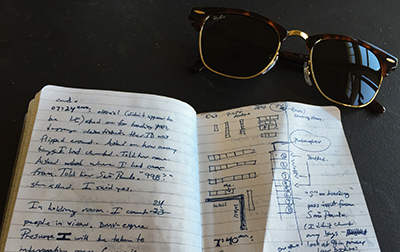Life on the run in Amazon jungle for journalist charged with defaming president
For Ecuadoran journalist and political activist Fernando Villavicencio, life on the lam has meant wading through jungle rivers to avoid police checkpoints, dining on crocodile and monkey meat, and penning his latest book from a series of safe houses.
Legacy of Rwanda genocide includes media restrictions, self-censorship
Twenty years after massacres, Rwanda stable but its media restricted The Rwandan government has taken great strides in bringing stability to the country since the 1994 genocide that claimed 800,000 lives, but moves to allow greater press freedom have been slow. While government control of the media has loosened, many journalists remain fearful that the…
South African court rules that criminal defamation is in line with constitution
Cape Town, South Africa, December 5, 2014–The Committee to Protect Journalists welcomes the decision by the Pretoria High Court in South Africa to uphold journalist Cecil Motsepe’s appeal against a conviction of criminal defamation, but disapproves of the court’s ruling that the crime of defamation for journalists falls in line with South Africa’s constitution. Motsepe,…
Thai military authorities force broadcast reporter off the air
New York, November 17, 2014–Military authorities in Thailand have forced the suspension of a broadcast reporter for violating orders under martial law that bar critical reporting on the country’s ruling junta, according to news reports. The Committee to Protect Journalists calls for an end to intimidation and harassment of journalists and a lifting of all…

More threats against Pakistan’s Hamid Mir
The well-known and controversial Pakistani television talk show host Hamid Mir survived a murder attempt on April 19, even though he was hit with six bullets–two of which are still in his body. “I can move, I can walk and I can talk, but I am still undergoing physiotherapy and taking medication,” he emailed to…

Mission Journal: In Zambia, Sata never fulfilled promise of greater transparency
“We’ll see for ourselves on Friday,” was a refrain on the lips of most journalists I met in Lusaka in mid-September, as they speculated on the health of President Michael Sata ahead of their country’s opening of parliament, where the leader was due to speak.

For journalists coming into US, policies border on the absurd
I was only supposed to be in Miami for the briefest of layovers. I was en route to San Francisco from São Paulo in Brazil, where I had participated in the NETMundial Conference on Internet governance along with hundreds of members of civil society, technology executives, journalists, and government officials. It was going to be…
The Road to Justice
1. What Does Impunity Mean? In 1981, the year CPJ was founded, Argentina was enmeshed in the so-called Dirty War, in which dozens of journalists were disappeared. Most were never seen again. To this day, no one has systematically documented the media murders that took place, and no one knows precisely how many journalists perished.…
The Road to Justice
2. Measuring Progress Against Stubborn Reality In November 2013, the United Nations General Assembly put the issue of impunity squarely on the global agenda. The Resolution on Safety of Journalists and the Issue of Impunity, adopted by consensus, describes the absence of justice for victims as “one of the main challenges to strengthening the protection…